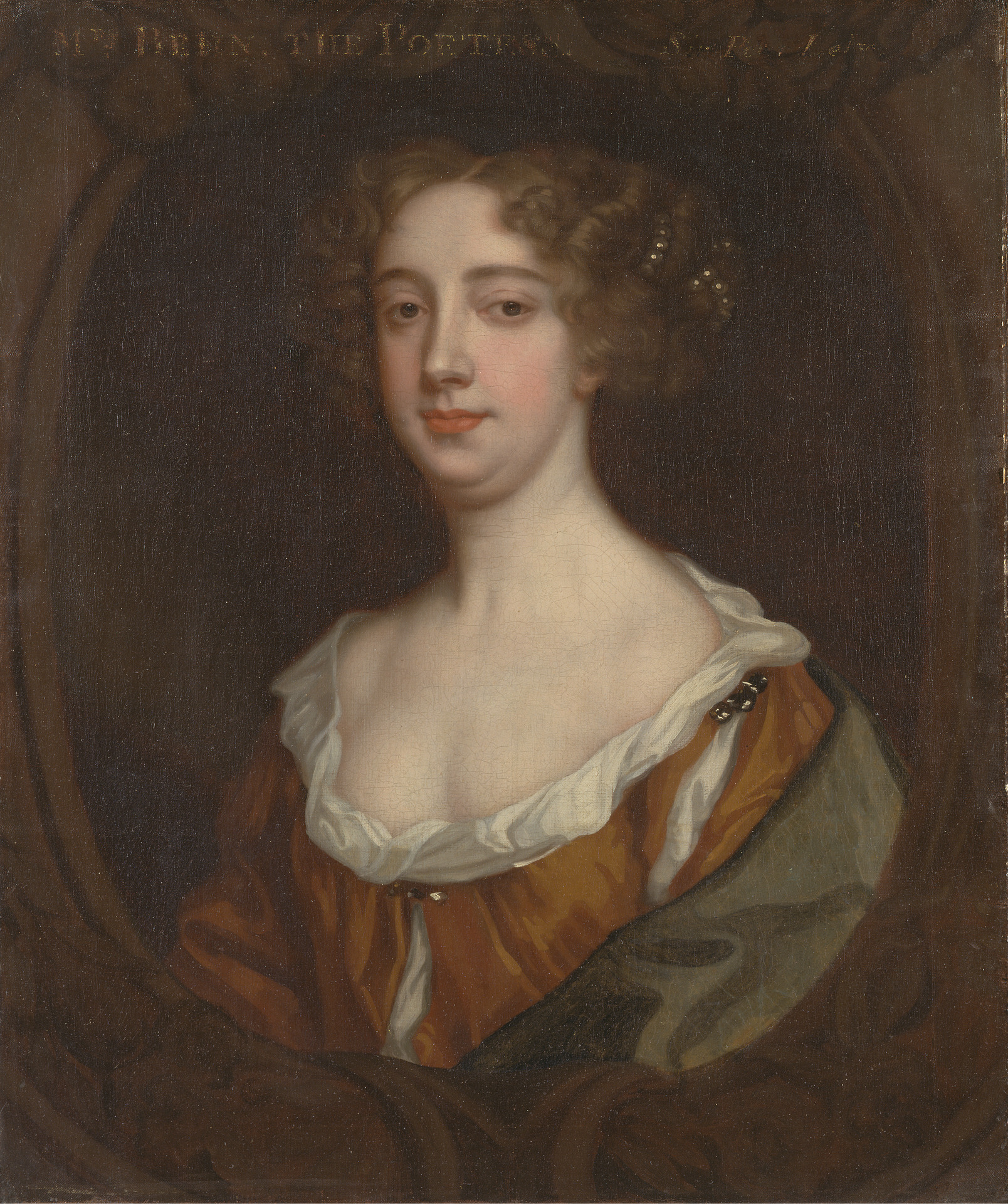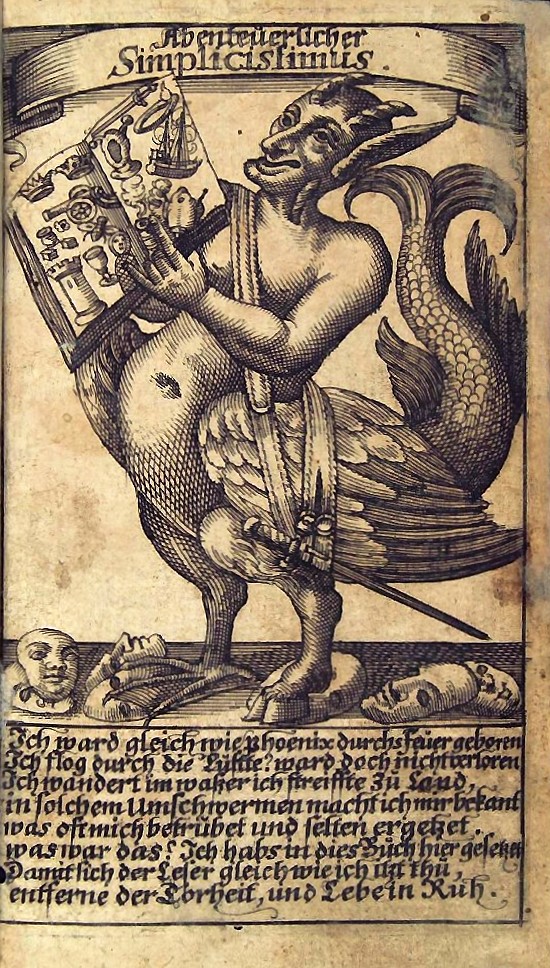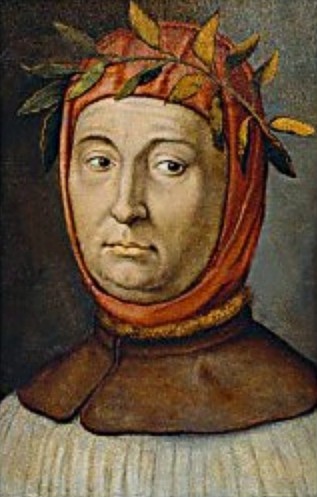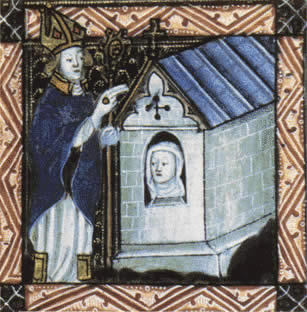|
1670 In Literature
This article contains information about the literary events and publications of 1670. ''Il y a plus de quarante ans que je dis de la prose sans que j'en susse rien.'' (For more than forty years I've been speaking prose without knowing anything about it) – Monsieur Jourdain, '' Le Bourgeois gentilhomme'' Events *January – Françoise-Marguerite, daughter of Marie de Rabutin-Chantal, marquise de Sévigné, marries the Comte de Grignan. *August 18 – John Dryden is appointed historiographer royal in England. *September 20 – Mrs Aphra Behn's first play, ''The Forced Marriage'', is produced at the Lincoln's Inn Fields Theatre in London by the Duke's Company, with Thomas Betterton in the lead. *October 14 – The première of Molière's comedy '' Le Bourgeois gentilhomme'' is performed by his troupe with himself in the title rôle, before the French royal court at the Château de Chambord, with incidental music by Jean-Baptiste Lully. *November 21 – The première of Racine' ... [...More Info...] [...Related Items...] OR: [Wikipedia] [Google] [Baidu] |
November 21
Events Pre-1600 *164 BCE – Judas Maccabeus, son of Mattathias of the Hasmonean family, rededicates the Temple in Jerusalem, an event that is commemorated each year by the festival of Hanukkah. (25 Kislev 3597 in the Hebrew calendar.) * 235 – Pope Anterus succeeds Pope Pontian, Pontian as the nineteenth pope. *1386 – Timur, Timur of Samarkand Timur's invasions of Georgia, captures and sacks the Kingdom of Georgia, Georgian capital of Tbilisi, taking King Bagrat V of Georgia captive. 1601–1900 *1620 – Plymouth Colony List of Mayflower passengers, settlers sign the Mayflower Compact (November 11, Old Style and New Style dates, O.S.) *1676 – The Danish astronomer Ole Rømer Rømer's determination of the speed of light, presents the first quantitative measurements of the speed of light. *1783 – In Paris, Jean-François Pilâtre de Rozier and François Laurent d'Arlandes make the first untethered hot air balloon flight. *1789 – North Caroli ... [...More Info...] [...Related Items...] OR: [Wikipedia] [Google] [Baidu] |
Pierre Daniel Huet
P. D. Huetius Pierre Daniel Huet (; ; 8 February 1630 – 26 January 1721) was a French churchman and scholar, editor of the Delphin Classics, founder of the Académie de Physique in Caen (1662–1672) and Bishop of Soissons from 1685 to 1689 and afterwards of Avranches. Life He was born in Caen in 1630, and educated at the Jesuit school there. He also received lessons from a Protestant pastor, Samuel Bochart. By the age of twenty he was recognized as one of the most promising scholars of his time. In 1651 he went to Paris, where he formed a friendship with Gabriel Naudé, conservator of the Mazarin Library. In the following year Samuel Bochart, being invited by Queen Christina of Sweden to her court at Stockholm, took his friend Huet with him. This journey, in which he saw Leiden, Amsterdam and Copenhagen, as well as Stockholm, resulted chiefly in the discovery, in the Swedish royal library, of some fragments of Origen's ''Commentary on St Matthew'', which gave Huet the ... [...More Info...] [...Related Items...] OR: [Wikipedia] [Google] [Baidu] |
Honcho Tsugan
Honcho or Honchō can refer to: Places * Itabashi-honchō Station, a metro station on the Toei Mita Line in Itabashi, Tokyo, Japan * Yoshiwara-honchō Station, a train station on the Gakunan Railway Line in Fuji, Shizuoka Prefecture, Japan * Hiyoshi-Honchō Station, a metro station in Japan * Nihonbashi-Honcho, a neighborhood in the Nihonbashi area, Chūō ward, Tokyo, Japan Literature * Honcho (comics), a fictional character in the Marvel Universe * Honchō Monzui, a Japanese book of Chinese prose and poetry * Honchō Seiki, a Japanese historical text * Honchō Tsugan, a Japanese historical text from 1670 Other * Delta Sailplane Honcho, an American glider *Jeep Honcho, an American vehicle * Honcho (rapper), a Filipino rapper formerly known as Bosx1ne, a member of the Filipino hip-hop collective Ex Battalion * ''Honcho'' - gay pornographic magazine Pornographic magazines or erotic magazines, sometimes known as adult magazines or sex magazines, are magazines that contain ... [...More Info...] [...Related Items...] OR: [Wikipedia] [Google] [Baidu] |
Hans Jakob Christoffel Von Grimmelshausen
Hans Jakob Christoffel von Grimmelshausen (1621/22 – 17 August 1676) was one of the most notable German authors of the 17th century. He is best known for his 1669 picaresque novel ''Simplicius Simplicissimus'' () and the accompanying ''Simplician Scriptures'' series. Early life Grimmelshausen was born at Gelnhausen. At the age of ten, he was kidnapped by Landgraviate of Hesse-Kassel, Hessian soldiers, and in their midst experienced military life in the Thirty Years' War. In 1639, he became a regular soldier in the Imperial Army of the Holy Roman Emperor, Imperial Army. At the latest, in the year 1644 he worked as a writer in a regiment's chancellery—from that year on documents by Hans Jakob Christoffel exist. At the close of the war, Grimmelshausen entered the service of Franz Egon von Fürstenberg-Heiligenberg, Franz Egon von Fürstenberg, Catholic bishop of Strasbourg. Subsequent to the peace, Grimmelshausen converted to Catholicism, although certain accounts indicate tha ... [...More Info...] [...Related Items...] OR: [Wikipedia] [Google] [Baidu] |
Fulke Greville, 1st Baron Brooke
Fulke Greville, 1st Baron Brooke (; 3 October 1554 – 30 September 1628) was an Elizabethan poet, dramatist, and statesman who served in the House of Commons at various times between 1581 and 1621, when he was raised to the peerage. Greville was a capable administrator who served the English Crown under Elizabeth I and James I as, successively, treasurer of the navy, chancellor of the exchequer, and commissioner of the Treasury, and who for his services was in 1621 made Baron Brooke, peer of the realm. Greville was granted Warwick Castle in 1604, making numerous improvements. Greville is best known today as the biographer of Sir Philip Sidney, and for his sober poetry, which presents dark and thoughtful views on art, literature, beauty and other philosophical matters. Life Fulke Greville, born 3 October 1554, at Beauchamp Court, near Alcester, Warwickshire, was the only son of Sir Fulke Greville (1536–1606) and Anne Neville (d. 1583), the daughter of Ralph Neville, 4th ... [...More Info...] [...Related Items...] OR: [Wikipedia] [Google] [Baidu] |
Madame De La Fayette
Marie-Madeleine Pioche de La Vergne, Comtesse de La Fayette (baptized 18 March 1634 – 25 May 1693), better known as Madame de La Fayette, was a French writer; she authored ''La Princesse de Clèves'', France's first historical novel and one of the earliest novels in literature. Life Christened Marie-Madeleine Pioche de La Vergne, she was born in Paris to a family of minor but wealthy nobility. At 16, de la Vergne became the maid of honour to Queen Anne of Austria and began also to acquire a literary education from Gilles Ménage, who gave her lessons in Italian and Latin. Ménage led her to join the fashionable salons of Madame de Rambouillet and Madeleine de Scudéry. Her father, Marc Pioche de la Vergne, had died a year before, and the same year her mother married Renaud de Sévigné, uncle of Madame de Sévigné, who remained her lifelong intimate friend. In 1655, de la Vergne married François Motier, comte de La Fayette, a widowed nobleman some eighteen years her ... [...More Info...] [...Related Items...] OR: [Wikipedia] [Google] [Baidu] |
Charles Cotton
Charles Cotton (28 April 1630 – 16 February 1687) was an English poet and writer, best known for translating the work of Michel de Montaigne from French, for his contributions to ''The Compleat Angler'', and for the influential ''The Compleat Gamester'' attributed to him. Early life He was born in Alstonefield, Staffordshire, at Beresford Hall, near the Derbyshire Peak District. His father, Charles Cotton the Elder, was a friend of Ben Jonson, John Selden, Sir Henry Wotton and Izaak Walton. The son was apparently not sent to university, but was tutored by Ralph Rawson, one of the fellows ejected from Brasenose College, Oxford, in 1648. Cotton travelled in France and perhaps in Italy, and at the age of twenty-eight he succeeded to an estate greatly encumbered by lawsuits during his father's lifetime. Like many Royalist gentlemen after the English Civil War the rest of his life was spent chiefly in quiet country pursuits, in Cotton's case in the Peak District and North Stafford ... [...More Info...] [...Related Items...] OR: [Wikipedia] [Google] [Baidu] |
Serenus De Cressy
Dom Serenus Cressy, O.S.B., (originally born Hugh Paulinus de Cressy), ( – 10 August 1674) was an English convert to Catholicism and Benedictine monk, who became a noted scholar in Church history. Life Anglican chaplain Hugh Paulinus de Cressy was born at Thorpe Salvin, Yorkshire, about 1605, the son of Hugh de Cressy, barrister of Lincoln's Inn, and later a justice of the Court of King's Bench (Ireland), and Margery d'Oylie of London, daughter of Thomas D'Oylie, a highly regarded doctor and scholar of Spanish, (and a close connection by marriage of Francis Bacon) and his wife Anne Perrott of North Leigh. Educated first at Wakefield Grammar school, when fourteen years old he went to Oxford, where he took the degree of B.A. in 1623 and that of M.A. in 1627. He attended, and became a fellow of Merton College, earning his Master's degree in theology the following year. [...More Info...] [...Related Items...] OR: [Wikipedia] [Google] [Baidu] |
14th Century In Literature
This article contains information about the literary events and publications of 14th century. __TOC__ Events *1323 – The name '' Pléiade'' is adopted by a group of fourteen poets (seven men and seven women) in Toulouse. *1324: 3 May ( Holy Cross Day) – The Consistori del Gay Saber, founded the previous year in Toulouse to revive and perpetuate the lyric poetry of the Old Occitan troubadors, holds its first contest. Arnaut Vidal de Castelnou d'Ari wins the ''violeta d'or'' (golden violet) for a '' sirventes'' in praise of the Virgin Mary. At about this date, Raimon de Cornet writes ''Doctrinal de trobar'' in support of the aims of the Gay Saber. *1327 **Between 20 January and 21 September – The deposed King Edward II of England perhaps writes the " Lament of Edward II". ** 6 April (Good Friday) – Tuscan writer Petrarch sees a woman he names Laura in the church of Sainte-Claire d'Avignon, which awakes in him a lasting passion. He writes a series of sonnets and othe ... [...More Info...] [...Related Items...] OR: [Wikipedia] [Google] [Baidu] |
Revelations Of Divine Love
''Revelations of Divine Love'' is a medieval book of Christian mysticism, Christian mystical devotions. Containing 87 chapters, the work was written between the 14th and 15th centuries by Julian of Norwich, about whom almost nothing is known. It is the earliest surviving example of a book in the English language known to have been written by a woman. It is also the earliest surviving work written by an English Anchorite, anchorite or anchoress. Julian, who lived all her life in the Kingdom of England, English city of Norwich, wrote about the sixteen mystical visions or "shewings" she received in 1373, when she was in her thirties. Whilst she was seriously ill, and believed to be on her deathbed, the visions appeared to her for several hours in one night, with a final revelation occurring the following night. After making a full recovery, she wrote an account of each vision, producing a manuscript now referred to as the ''Short Text''. She developed her ideas for decades, whilst ... [...More Info...] [...Related Items...] OR: [Wikipedia] [Google] [Baidu] |
Julian Of Norwich
Julian of Norwich ( – after 1416), also known as Juliana of Norwich, the Lady Julian, Dame Julian or Mother Julian, was an English anchoress of the Middle Ages. Her writings, now known as ''Revelations of Divine Love'', are the earliest surviving English-language works attributed to a woman. They are also the only surviving English-language works by an anchoress. Julian lived in the English city of Norwich, an important centre for commerce that also had a vibrant religious life. During her lifetime, the city suffered the devastating effects of the Black Death of 13481350, the Peasants' Revolt (which affected large parts of England in 1381), and the suppression of the Lollards. In 1373, aged 30 and so seriously ill she thought she was on her deathbed, Julian received a series of visions or shewings of the Passion of Christ. She recovered from her illness and wrote two versions of her experiences, the earlier one being completed soon after her recovery—a much longer ... [...More Info...] [...Related Items...] OR: [Wikipedia] [Google] [Baidu] |






